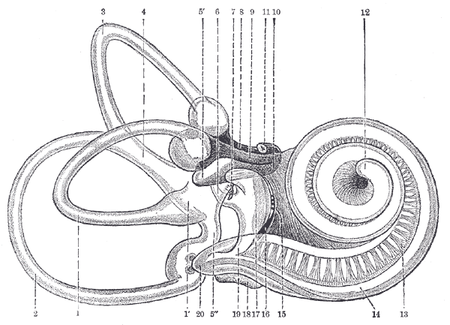Dizzy

I’ve been laid up since Wednesday with labyrinthitis, an infection of the inner ear, which results in fluid-filled and inflamed ear passages. And dizziness. WoOOOooOOooo. It’s slowly coming under control with potent antibiotics; I was initially prescribed dramamine to deal with the immediate symptoms, but that turned out to be completely ineffective; I saw the doctor again yesterday and he prescribed a combination of valium and prednisone (cortisone) instead. The valium also seems to be ineffective (perhaps he prescribed it in part to counter the behavioral side-effects of the prednisone, which can put you on edge, from what I’m told), but I am on the mend.
For a couple days, I wasn’t able to keep food down. Since then, I’ve improved gradually. Today’s the first day I’ve been able to comfortably read more than a paragraph or so at a time, although it still requires more concentration than usual, and I’m unsteady when moving around. With any luck, I’ll be over all this by the end of the week. It’s been a strange experience: I think it’s the first time in my adult life that I’ve been so incapacitated by an illness that for days on end, I can’t do much more than lie in bed and watch TV. It’s also kind of strange that I would be laid low by just this one symptom–there’s been no pain or anything else that you’d normally associate with being laid up.